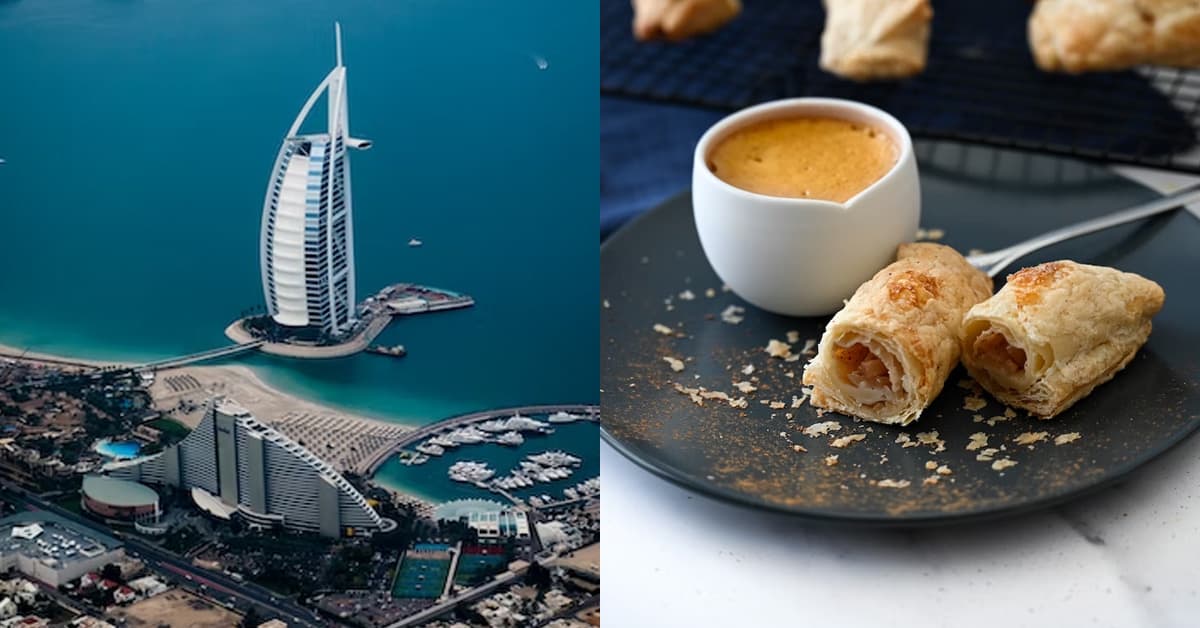Emirati cuisine is a reflection of the rich cultural heritage of the United Arab Emirates. The cuisine is a blend of traditional Arabic and Bedouin dishes, with influences from Indian, Persian, and African cuisines. Emirati food is known for its bold flavors, aromatic spices, and generous use of herbs.
The cuisine is also characterized by its use of fresh ingredients, such as seafood, meat, and vegetables, which are sourced from local markets and farms. Emirati food is a celebration of the country’s history, culture, and traditions, and is an essential part of the Emirati way of life.
Emirati cuisine
Is Emirati food halal?
Yes, Emirati food is halal. Halal refers to food that is permissible according to Islamic law, and Emirati cuisine follows these guidelines.
The meat used in Emirati dishes is typically sourced from animals that have been slaughtered in accordance with Islamic principles.
What kind of food do Emirati eat?
Emirati cuisine is a blend of Middle Eastern, African, and South Asian influences. Some popular Emirati dishes include:
- Machboos: A spicy rice dish made with meat or fish, tomatoes, onions, and a blend of spices.
- Harees: A porridge-like dish made with wheat, meat, and spices.
- Thareed: A bread and meat stew that is often served during Ramadan.
- Luqaimat: A sweet, deep-fried dough ball that is drizzled with honey or syrup.
- Balaleet: A sweet vermicelli pudding that is often served for breakfast.
- Shawarma: A popular Middle Eastern sandwich made with grilled meat, vegetables, and sauce.
- Manakish: A type of flatbread that is topped with cheese, herbs, or meat.
- Samosas: A popular snack made with a crispy pastry shell filled with spiced meat or vegetables.
- Ghuzi: A roasted lamb or goat dish that is often served during special occasions.
- Arabic coffee: A strong, spiced coffee that is often served with dates.
How can you tell if the food is halal in United Arab Emirates?
In the United Arab Emirates, halal food is widely available and can be identified in the following ways:
1. Look for the halal certification logo on the packaging or in the restaurant. The UAE has several halal certification bodies that certify food products and restaurants as halal.
2. Ask the restaurant or food vendor if their food is halal. Most restaurants and food vendors in the UAE are aware of halal food requirements and can provide information about their food.
3. Check the ingredients list. Halal food should not contain any pork or alcohol products, and any meat used should be from animals that have been slaughtered according to Islamic guidelines.
4. Visit halal food markets or supermarkets. These markets and supermarkets specialize in halal food products and are a reliable source of halal food.
5. Look for the word “halal” on the menu or signage. Many restaurants in the UAE will indicate which dishes are halal on their menus or signage.
Is it hard to find halal food in United Arab Emirates?
No, it is not hard to find halal food in the United Arab Emirates.
The majority of the population in the UAE is Muslim, and halal food is widely available in restaurants, supermarkets, and food outlets.
Many restaurants in the UAE serve halal food, and there are also many halal-certified food outlets.
Additionally, there are several halal food delivery services available in the UAE.
Is Emirati food healthy?
Emirati food is generally healthy as it includes a variety of fresh vegetables, fruits, and lean meats.
However, some traditional dishes may be high in fat and calories due to the use of ghee, oil, and sugar.
Consuming Emirati food in moderation and balancing it with physical activity is important to maintain a healthy lifestyle.
What is Emirati food similar to?
Emirati food is similar to other Middle Eastern and Arabic cuisines, such as Lebanese, Syrian, and Saudi Arabian cuisine.
It also has influences from Indian, Persian, and African cuisine.
Steps to find halal food in United Arab Emirates
1. Look for halal certification: The easiest way to find halal food in the UAE is to look for halal certification. Many restaurants and food outlets display halal certification from recognized authorities such as the Emirates Authority for Standardization and Metrology (ESMA) or the Halal Food Control Committee.
2. Check online directories: There are several online directories that list halal restaurants and food outlets in the UAE. These directories include Zabihah, Halal Foodie, and Halal Gems.
3. Ask locals: Locals are often the best source of information when it comes to finding halal food. Ask your hotel staff, taxi driver, or any local you meet for recommendations on where to find halal food.
4. Visit halal food markets: The UAE has several halal food markets where you can find a variety of halal food products. These markets include the Dubai Central Market, Abu Dhabi Central Market, and the Sharjah Central Market.
5. Look for vegetarian options: If you are unable to find halal food, look for vegetarian options. Many vegetarian dishes are naturally halal, and you can find them in most restaurants.
6. Avoid non-halal ingredients: When ordering food, make sure to ask about the ingredients used. Avoid non-halal ingredients such as pork, alcohol, and gelatin.
7. Be cautious when dining out: When dining out, be cautious and ask questions about the food. If you are unsure about the halal status of a dish, it is best to avoid it.

